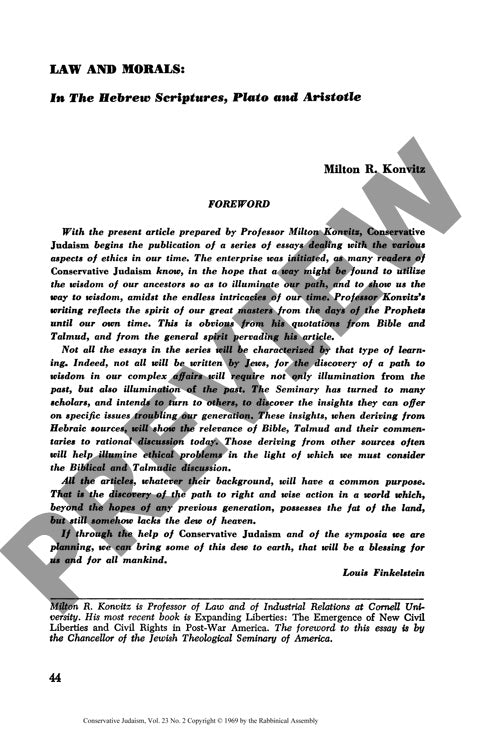Law and Morals in the Hebrew Scriptures
Couldn't load pickup availability
Ancient Hebrew and Greek traditions both grappled with a fundamental tension: can human laws fully embody divine moral truth? While these civilizations initially saw law and morality as unified under divine or civic authority, their philosophical and religious texts reveal growing recognition of gaps between legal codes and higher ethical principles. Through analysis of biblical sources, Talmudic literature, and classical philosophical works, distinctive approaches emerge. Hebrew Scripture unified legal justice (*mishpat*) and righteousness (*tsedakah*) under divine commandment, yet developed the principle of *lifnim mi-shurat ha-din* (beyond the letter of the law) to reconcile strict legalism with moral imperatives. Greek thought similarly evolved from viewing law as divinely sanctioned within the polis to Plato's separation of ideal moral wisdom from practical governance, and Aristotle's distinction between natural and conventional justice through *epikeia* (equity). Despite their holistic ideals, both traditions ultimately acknowledged that positive law alone cannot fully capture moral truth, developing sophisticated frameworks to elevate ethical principles above strict legal formalism. These ancient insights continue to shape modern debates about civil disobedience, human rights, and the proper relationship between legal and moral authority.

More Information
-
Physical Description
-
Publication Information
Published
ISBN
-
Publication Credits
Milton Konvitz

